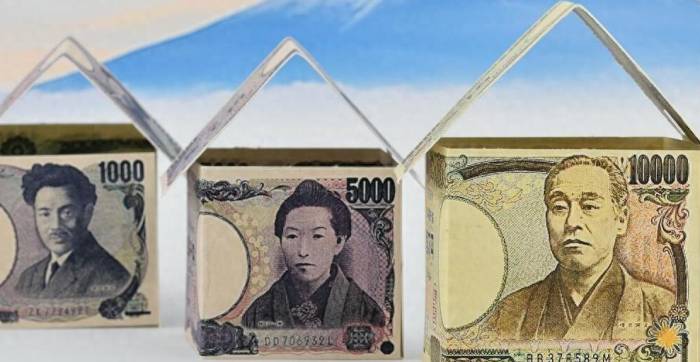Japan's Economy Reenters Trap Amid Desperate Inflation Efforts
How should China's future economy proceed? How does deflation cause significant harm? Our neighboring country, Japan, has provided us with a vivid lesson over the course of 30 years.
In the past two years, Japan has experienced import-driven inflation. Logically, this should be useless for the economy, so why are they so protective of it? This matter is indeed very much worth our vigilance and learning.
The story of Japan losing 30 years has been told by many and is very familiar to everyone, so we will not repeat it here.
Today, let's focus on discussing how seemingly useless import-driven inflation has become a lifeline for the Japanese economy.
First, let's talk about something off-topic. Japan's consumer spending has been sluggish for decades, and the Bank of Japan has been very concerned, lowering interest rates to zero without success, and even to negative levels, which also proved ineffective for decades.
So you can see, those economists who advocate for lowering interest rates to zero, whether their intentions are good or hiding something bad, we don't know. However, the living example of Japan is there, and even negative interest rates cannot stimulate consumption, let alone the economy.
Advertisement
Everyone knows that Japan has been hoping for inflation for 30 years, and now that inflation has finally arrived, it turns out to be import-driven inflation, which is a great disappointment. Upon closer observation, it is found to have some use, and they are desperately protecting it.
What exactly is going on?
First question, what is import-driven inflation? Why is it said to be useless?
The definition from encyclopedias is that import-driven inflation refers to the phenomenon of sustained domestic price increases caused by the rise in the prices of foreign goods or factors of production.This situation is usually closely related to an open economy, and the greater the degree of openness, the greater the likelihood of it occurring.
So you understand that Japan's inflation is not the result of Japanese citizens' own purchases, but is caused by the rise in international prices of raw materials and energy. Therefore, this thing is not real at all, but a false inflation.
Since it is not the result of Japanese citizens' own purchases, but caused by others, it indicates that Japan's consumption has not picked up, but has increased the burden on the economy and its citizens. On the surface, it seems that this is the harm caused by foreign guys, without any benefits.
However, the Japanese government and the Bank of Japan are desperately protecting this thing and have introduced some measures to cooperate with the continued inflation of imported inflation, which is very puzzling.
How does Japan protect imported inflation?
The most typical example is that the Bank of Japan was very cautious last year, sometimes hinting at interest rate hikes, sometimes quieting down; sometimes saying to adjust the yield curve control policy, with a reference to a cap of 1%, sometimes saying it is safer to restore it to within 0.5%.
This is really afraid, in case a little carelessness, the interest rate fluctuates a bit, and even the hard-won imported inflation is also lost.
In addition, Japan has introduced a very special policy to cooperate with the continued inflation of imported inflation.
This policy is Japan's corporate reform. When you hear the name of this reform, do you think this thing is very empty?
In fact, it is not the case. Japan has made a real and ruthless move this time. Specifically, it requires listed companies with a price-to-book ratio below 1 to make comprehensive rectifications, distribute dividends, and reduce costs.If your price-to-book ratio remains below 1, you may face forced delisting.

What is the rationale behind this? What is its purpose?
This is due to Japan's long-term negative interest rates, where many companies are not short of money and have become spoiled, with some simply lying flat and turning into zombie companies.
If companies do not strive for improvement, how can the economy develop? How can residents' income increase? This leads to a vicious cycle, making consumption even worse.
So the idea here is that companies that are not making money should quickly think about how to make money, raise wages for their employees, so that everyone can buy more, inflation can continue, and consumption can heat up.
The question arises, why does Japan protect seemingly useless imported inflation so much? The key here is inflation expectations.
What does this mean? Over the past few decades, Japanese citizens have become accustomed to stable prices, where something that costs 100 yen this year will still cost 100 yen next year, and there's even a chance it might cost 98 yen, so there's no rush to buy anything because they won't increase in price.
Now, imported inflation is also inflation, and it changes everyone's inflation expectations, meaning that prices will also rise. So, if there's something you want to buy, you should buy it quickly before the price goes up.
Once Japanese citizens start buying more, it could turn into real inflation, and consumption might pick up, right?
From this perspective, if our prices do not rise, and everyone loses inflation expectations, or even has deflation expectations, then consumption and the economy would be in danger.Of course, some people argue that China is different from Japan. Although the national conditions may differ, the principles of economics remain the same. Shouldn't we carefully consider avoiding potential pitfalls by learning from Japan's tragic economic story?